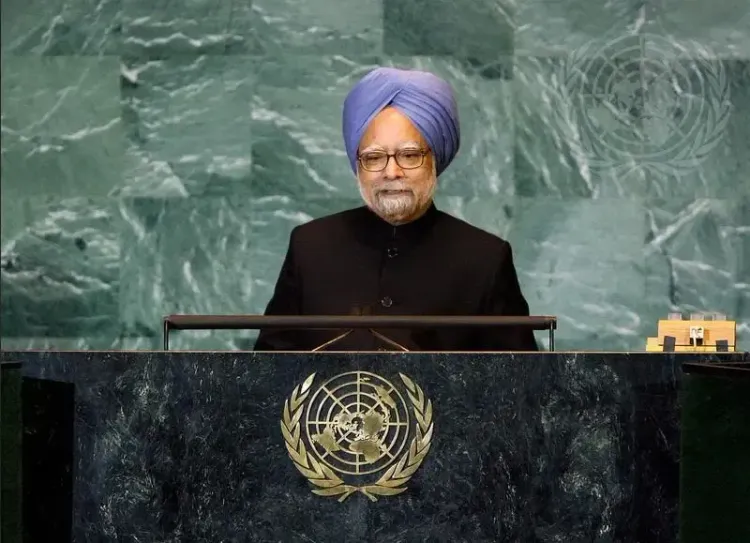Antonio Guterres Acknowledges Manmohan Singh's Significant Contribution to India's Economic Path

United Nations, Dec 28 (NationPress) UN Secretary-General Antonio Guterres has expressed his sadness regarding the death of India's former Prime Minister Manmohan Singh, who played a significant role in influencing the nation's economic path, as stated by his Associate Spokesperson Stephanie Tremblay.
"The Secretary-General was deeply saddened to learn of Dr Manmohan Singh's passing," she mentioned in a statement released on Friday.
"He was instrumental in India's recent history, especially in defining its economic direction," the statement noted.
"During his tenure as Prime Minister from 2004 to 2014, Singh managed a phase of substantial economic growth and advancement in India."
"His leadership also bolstered India's collaboration with the United Nations, actively engaging in global initiatives and partnerships," it further stated.
Singh worked alongside Guterres's predecessors, Kofi Annan and Ban Ki-moon, throughout his ten years as Prime Minister, meeting them both at the UN headquarters in New York and at various international gatherings.
He addressed the UN General Assembly on five occasions.
Addressing climate change has been a critical issue on the UN's agenda, alongside sustainable development aimed at eradicating poverty.
In pursuit of these objectives, Singh reaffirmed India's dedication while consistently urging global leaders to consider the historical context of developing nations and the unique responsibilities of developed countries in achieving these goals.
At the UN Climate Change Conference in Denmark in 2009, he stated, "India was a latecomer to industrialization and, as such, we have contributed minimally to the accumulation of greenhouse gas emissions that have caused global warming; however, we are committed to being part of the solution."
When negotiations began during his Prime Ministership for the landmark Paris Climate Change Accord adopted in 2015, he firmly insisted that it should be equitable, acknowledging the disproportionate contribution of developed nations to the greenhouse gas crisis and its impacts on developing countries.
He also participated in the Rio+ conference, the UN Conference on Sustainable Development held in Rio de Janeiro in 2012.
While criticizing developed nations for their reluctance in providing financial aid for global development, he noted, "Sustainable development requires the prudent use of available natural resources. We must be significantly more economical in our resource utilization."
Although the UN was formulating its ambitious 2030 Sustainable Development Goals adopted in 2015 after his departure from office, Singh highlighted the necessity for funding for developing nations and the transfer of technology.
In his final address to the UN General Assembly in 2013, he remarked, "The issues affecting over a billion people living in extreme poverty worldwide must be addressed more directly. Poverty continues to be a major political and economic dilemma, and its eradication demands special focus and a new collective effort."
"Thus, it is vital for the UN to establish clear and concise objectives for its sustainable development agenda and provide practical means of implementation, including the adequate flow of resources and technology transfer, while fully considering the perspectives of developing nations," he concluded.










